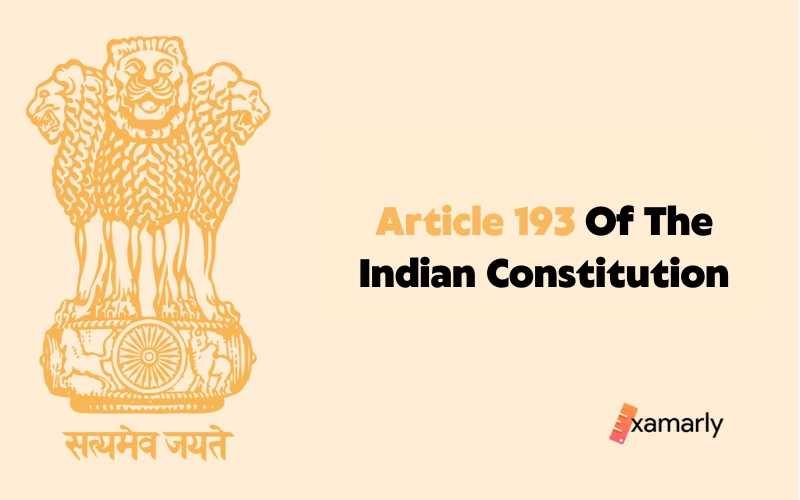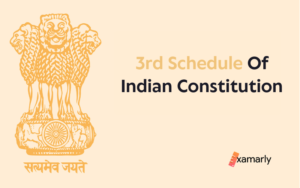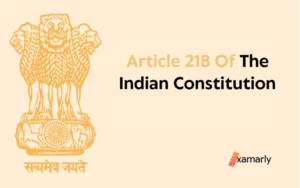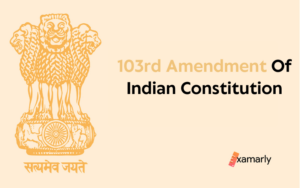Can an individual be penalised for sitting and voting in the Houses of the State Legislature? If yes, then what are the conditions for this penalty? Most importantly, what is the penalty for an offence of this degree? Article 193 is the answer to all these queries.
Article 193 of the Indian Constitution defines the penalty for sitting and voting in the State Legislative Assembly or the State Legislative Council without being qualified or disqualified or without properly adhering to the requirements as mentioned in Article 188.
Read on to learn in details the penalty imposed under Article 193 and the reasons under which an individual becomes liable to receiving such a punishment.
- Article 193 Of The Indian Constitution: A Constitutional Provision For Penalising The Members Of The State Legislature
- Explanation Of Article 193 Of The Indian Constitution
- Summing Up
- FAQs Related To Article 193
- How Is Article 188 Of The Indian Constitution Relevant To Article 193?
- What Was The Draft Article For Article 193 Of The Indian Constitution?
- When Was The Draft Article For Article 193 Of The Indian Constitution Debated And Adopted?
- Which Are The Bodies That Can Formulate Laws To Prohibit Unqualified Members From The Houses Of The Legislature Of A State?
- What Is The Penalty That Is Imposed Under Article 193 Of The Indian Constitution?
Article 193 Of The Indian Constitution: A Constitutional Provision For Penalising The Members Of The State Legislature
The following paragraph has been quoted from the Constitution of India. Article 193 in the official document of the Constitution reads as follows:
” 193. Penalty for sitting and voting before making oath or affirmation under article 188 or when not qualified or when disqualified.—
If a person sits or votes as a member of the Legislative Assembly or the Legislative Council of a State before he has complied with the requirements of article 188, or when he knows that he is not qualified or that he is disqualified for membership thereof, or that he is prohibited from so doing by the provisions of any law made by Parliament or the Legislature of the State, he shall be liable in respect of each day on which he so sits or votes to a penalty of five hundred rupees to be recovered as a debt due to the State. “
Explanation Of Article 193 Of The Indian Constitution
To understand the provision provided under Article 193 of the Indian Constitution, let us try to look at it closely and gain an in-depth understanding of this article.
The article states that a penalty will be imposed on any member of the State Legislative Assembly or the State Legislative Council, in case if they assume their seat and participate in the voting process of either of the Houses before they have made an oath or affirmation as per the provisions of Article 188 of the Indian Constitution. This article also takes into consideration the penalty for a member who sits and votes when they are not in the state of being qualified or when their qualification for holding a seat in that House has been revoked or they are barred from sitting and voting in any meetings of either of the Houses.
The Houses of the Legislature of a State includes the State Legislative Assembly (Vidhan Sabha) and the State Legislative Council (Vidhan Parishad). Each of these Houses have their own distinct members. It is mandatory for these members to adhere to certain protocols that have been put in place.
It has been further explained in the article that if any member sits and votes in either of these Houses, then he is liable to be penalised by the State. Every member must comply with the requirements of Article 188 of the Indian Constitution to be exempted from any sort of punishment.
The involvement if any individual who does not fulfil the criteria for qualification for membership or is disqualified from being a member of either of the Houses is a punishable offence. It will still be counted as an offence if any such individual is aware of the consequences of getting involved despite being strictly prohibited by the Parliament or the Legislature of the State from any sort of involvement in the matters of the Houses in terms of assuming a seat and participating in the voting process. The Parliament or the Legislature of a State is entitled to forbid an individual from taking a seat or participating in the voting process by means of provisions of any law formulated by the bodies themselves.
Any individual who is found guilty of the above offences can be held accountable and liable for receiving punishment for every day that he has sat and participated in the voting of either of the Houses. Such an individual receives a monetary punishment of five hundred rupees per day and this amount must be collected by the State and allocate it as a debt due to it.
Summing Up
Through Article 193 of the Indian Constitution, we learnt that no individual is permitted to assume their seat in either of the Houses of the Legislature of a State till they adhere to the requirements mentioned in Article 188 of the Indian Constitution.
Sitting and participating in the voting process is a punishable offence if the concerned individual is not qualified or has been disqualified or is nor eligible to do so in accordance to the provision of any law formulated by the Parliament or the Legislature of a State.
Therefore, we can say that Article 191 defines the procedure in respect to imposing monetary punishment on individuals who take seat and vote in matters of the Houses of the Legislature of a State in an unauthorised manner.
FAQs Related To Article 193
How Is Article 188 Of The Indian Constitution Relevant To Article 193?
Article 188 of the Indian Constitution provides that before assuming a seat, each member of the Legislative Assembly or the Legislative Council of a State must take an oath or affirmation and present it to the Governor or another official authorised by him. The oath or affirmation taken by any such member must be in accordance with the format outlined in the Third Schedule of the Indian Constitution.
The constitutional provision provided by Article 193 states that if any member does not comply with the requirements to assume a seat as mentioned in Article 188, then such a member is liable to receiving monetary punishment to be collected by the State.
What Was The Draft Article For Article 193 Of The Indian Constitution?
Article 193 of the Indian Constitution was finalised from Draft Article 168. It established a fine for members whose presence and participation in the meetings of the State Legislative Assembly and the State Legislative Council was unauthorised. Such individuals shall not participate in or cast votes in the State Legislature while disqualified or ineligible or without meeting the requirements of Article 188 of the Indian Constitution.
When Was The Draft Article For Article 193 Of The Indian Constitution Debated And Adopted?
Draft Article 168 was approved by the Constituent Assembly without any objections. It was made part of the Constitution of India on June 3, 1949.
Which Are The Bodies That Can Formulate Laws To Prohibit Unqualified Members From The Houses Of The Legislature Of A State?
The Parliament and the Legislature of the State can make laws with provisions under which unqualified as well as disqualified members are liable to receiving punishment if they get involved in the voting and other matters of the Houses.
What Is The Penalty That Is Imposed Under Article 193 Of The Indian Constitution?
Any individual who is liable to punishment under Article 193 must pay a fine of five hundred rupees for each day that they assumed a seat or voted in an unauthorised manner. This fine is collected by the State as a debt that was due.






